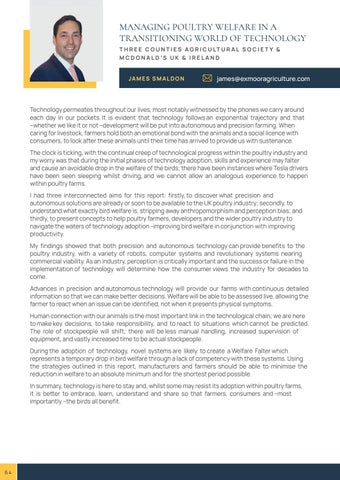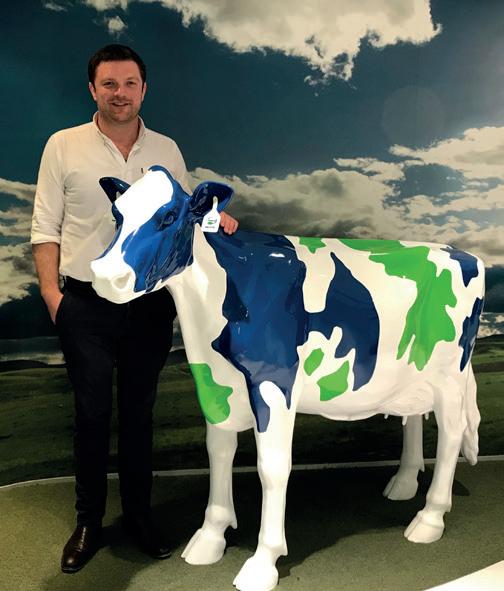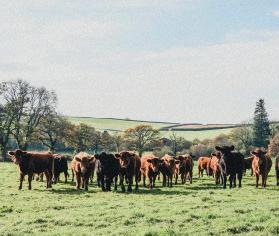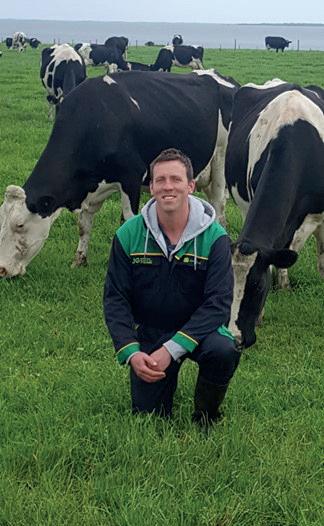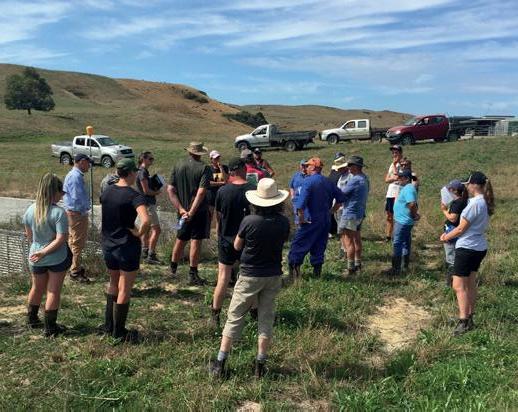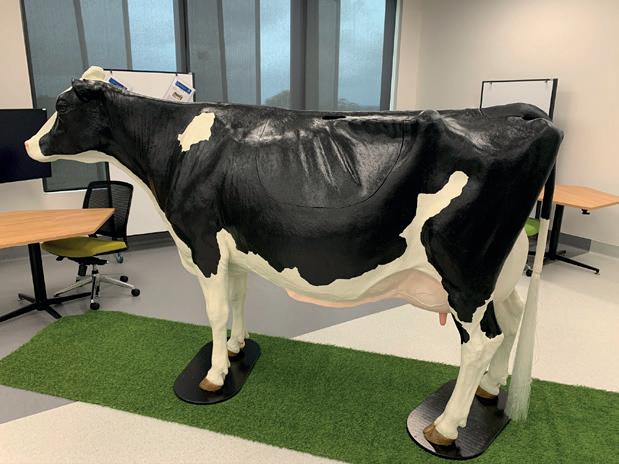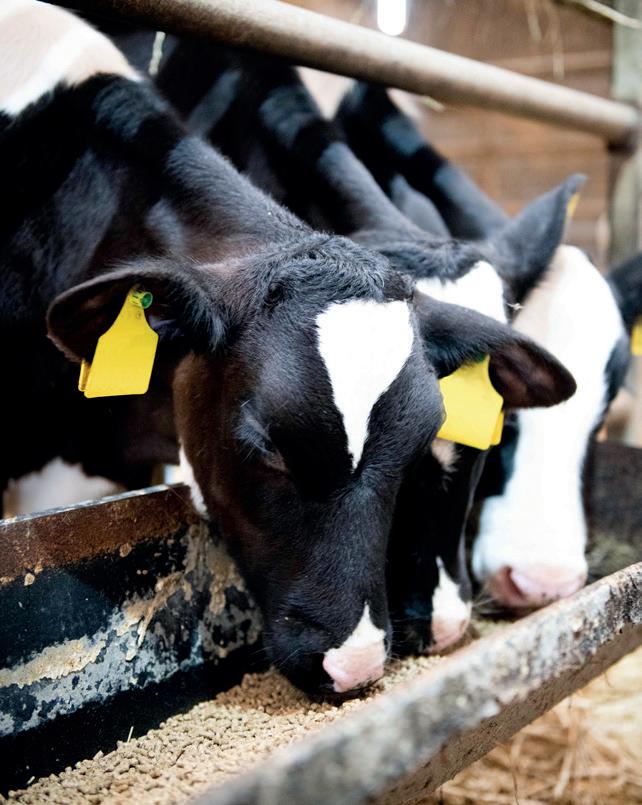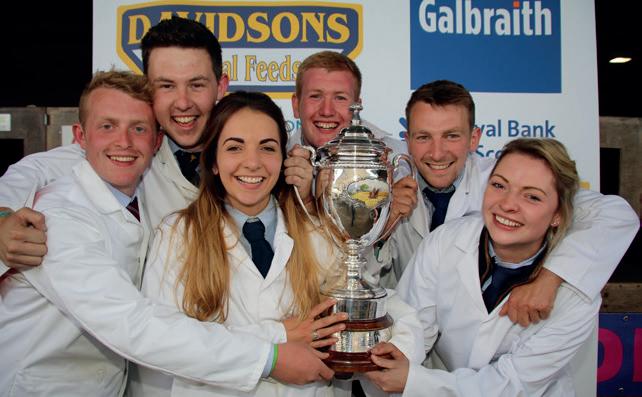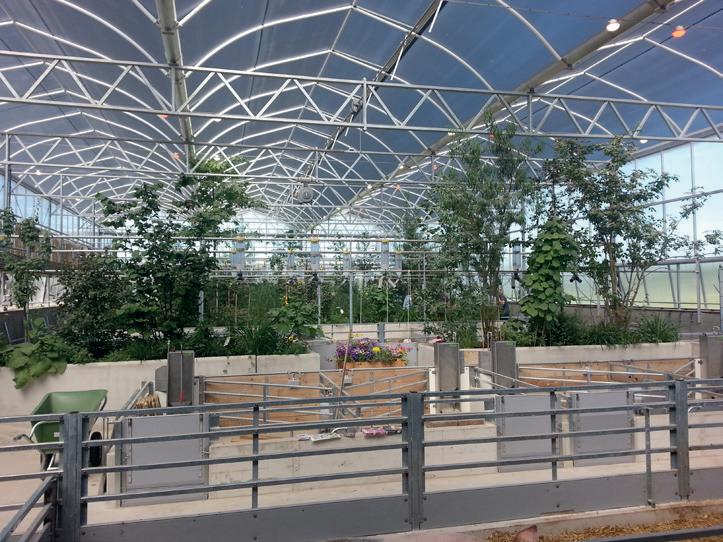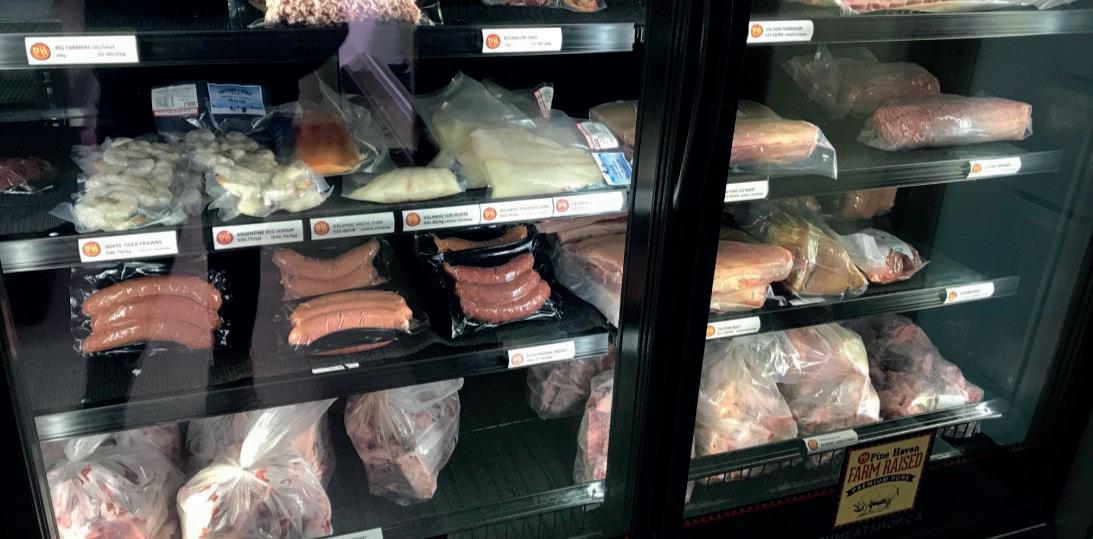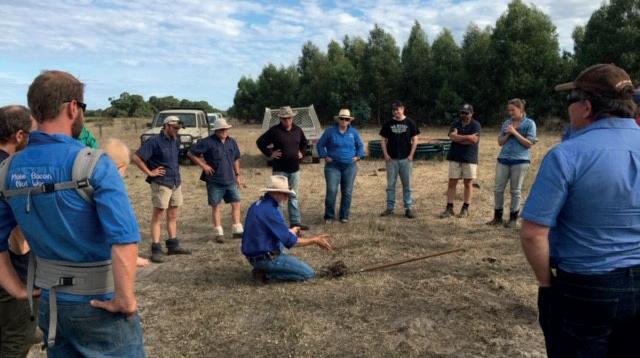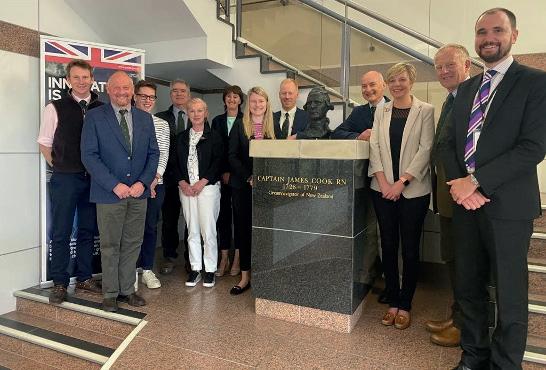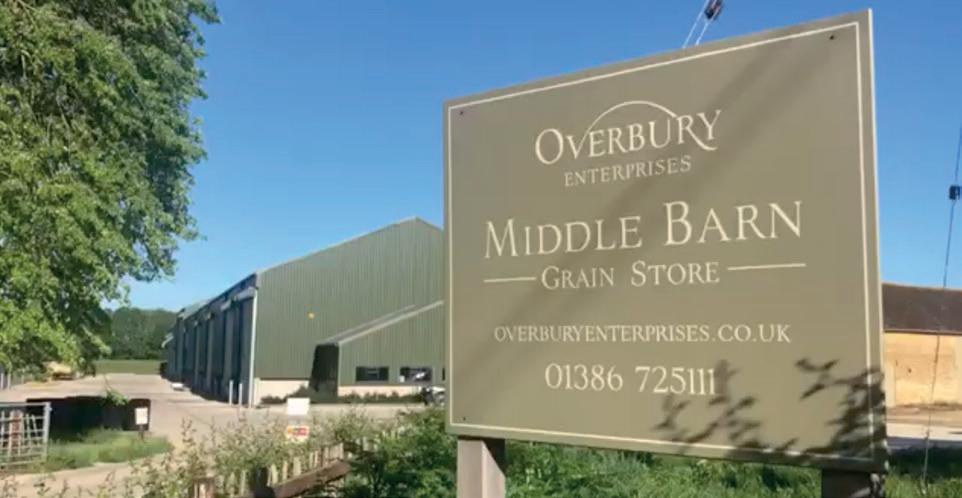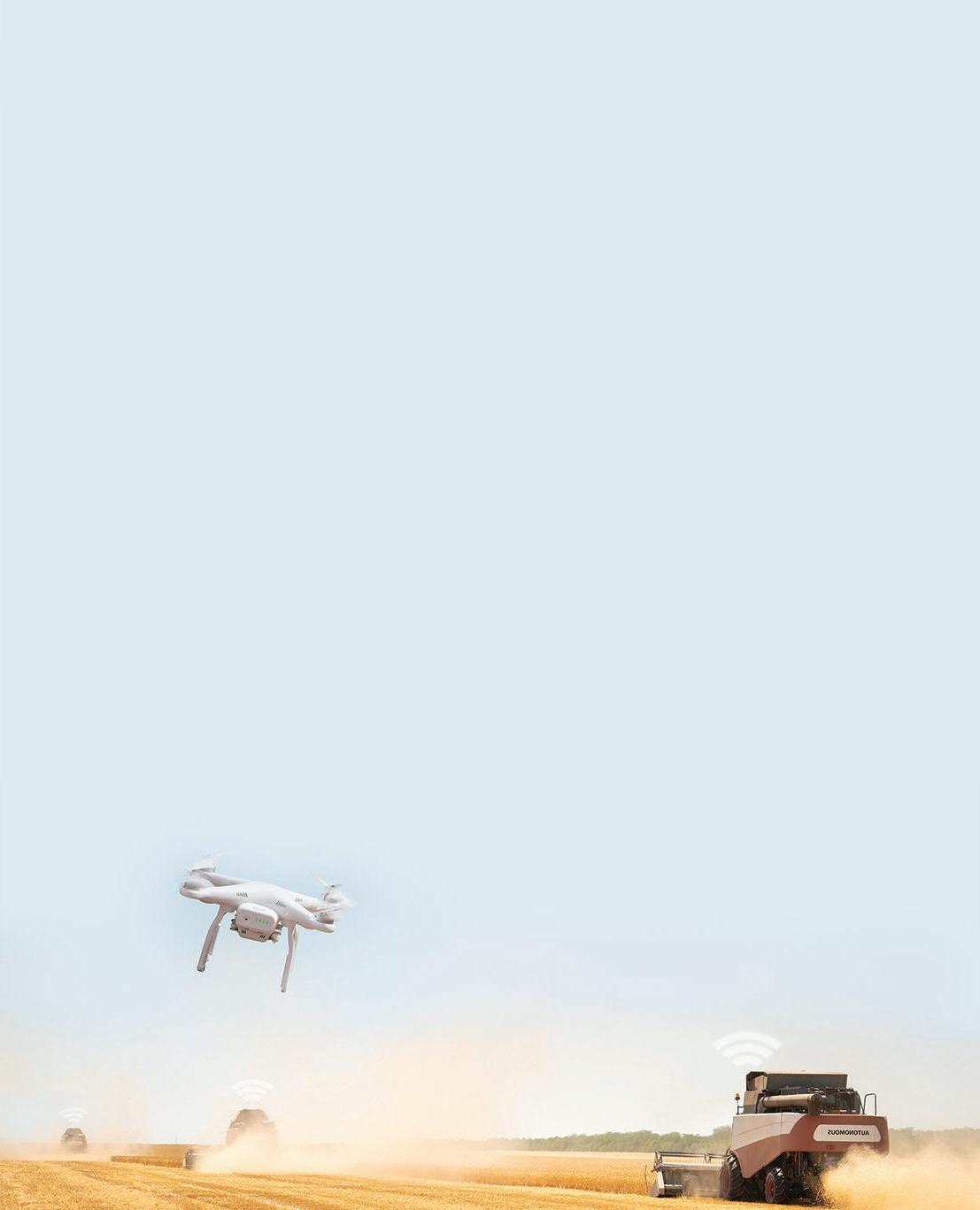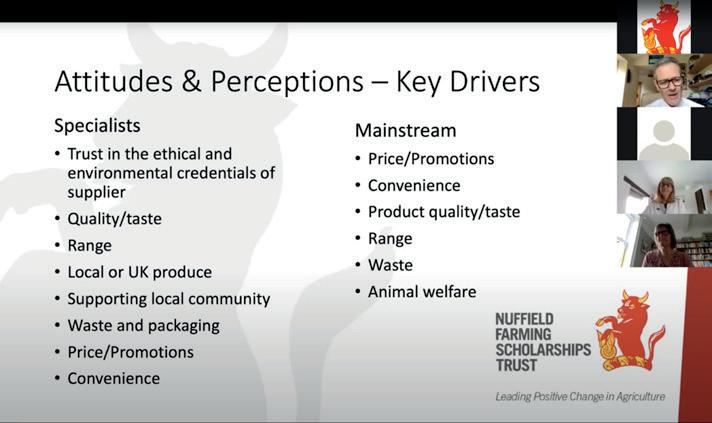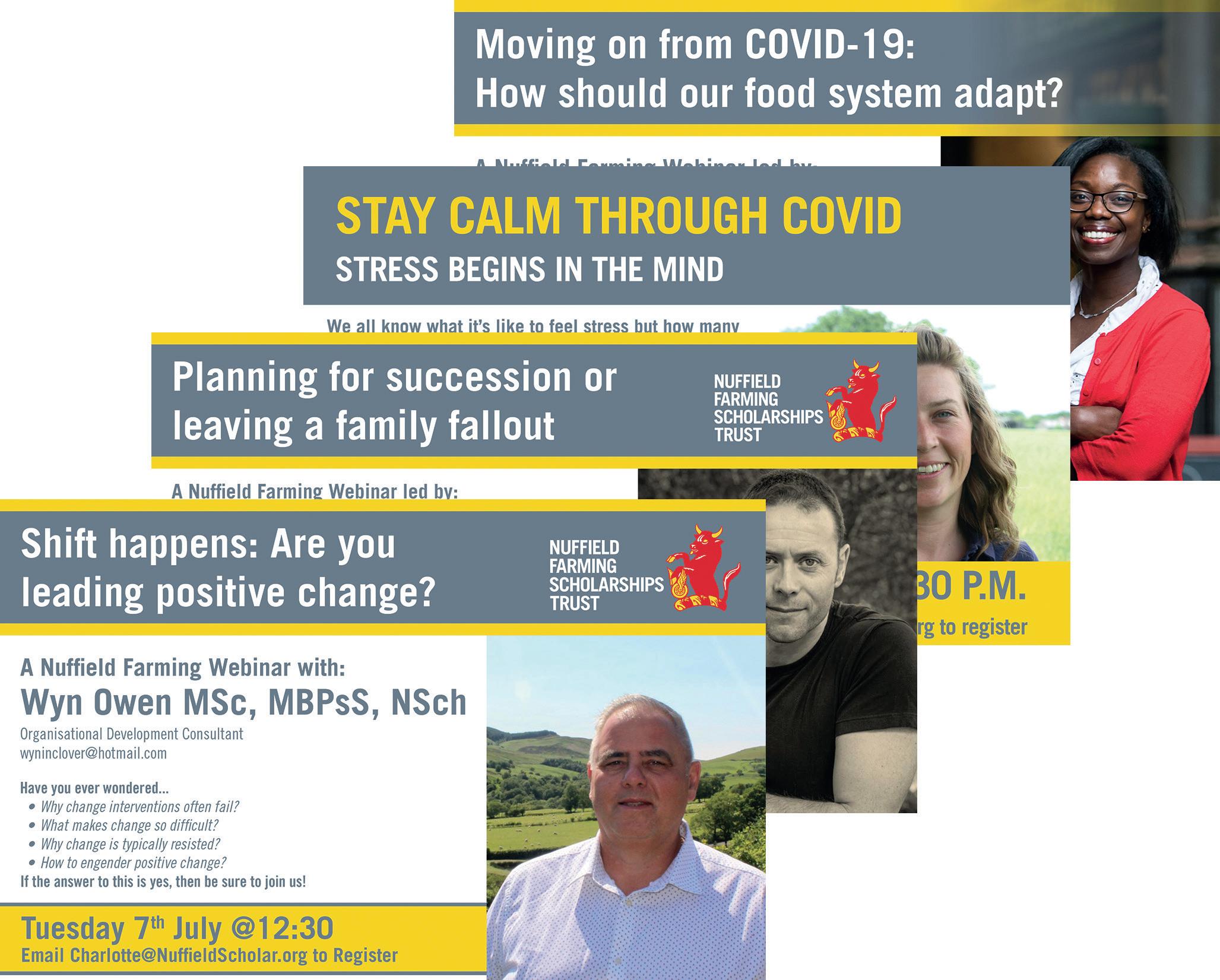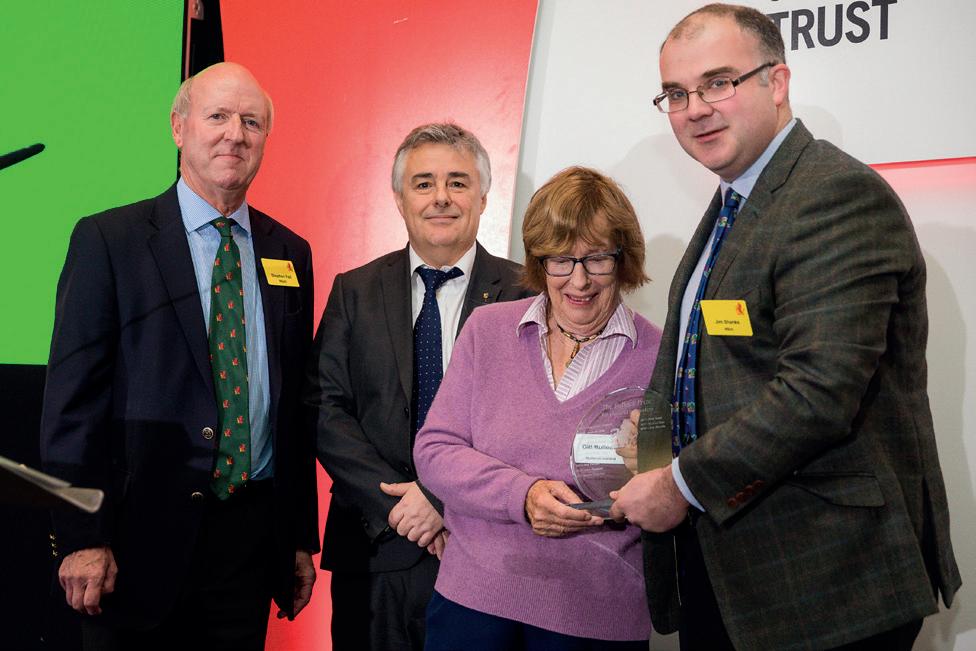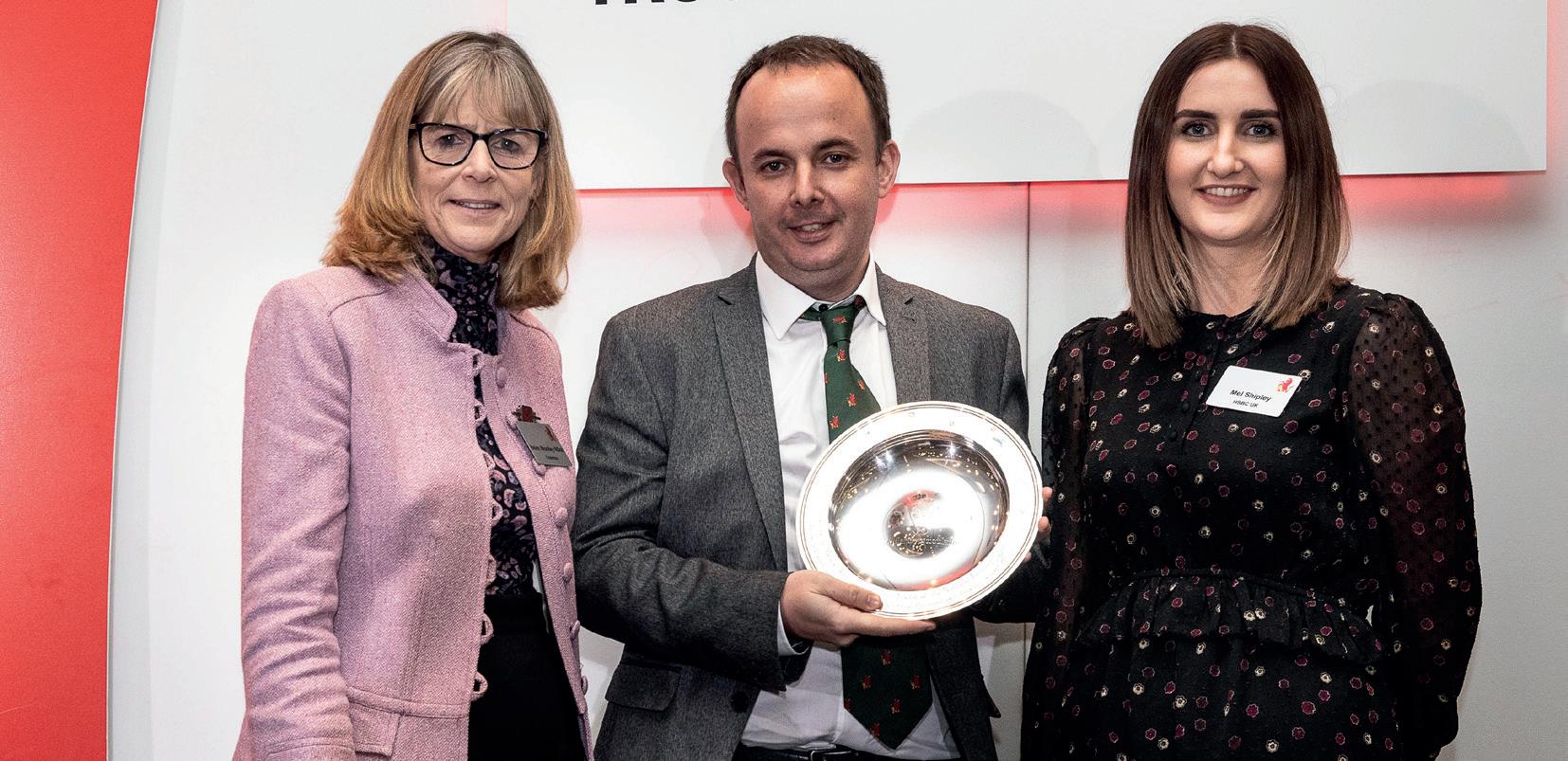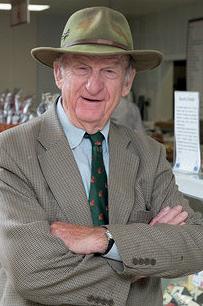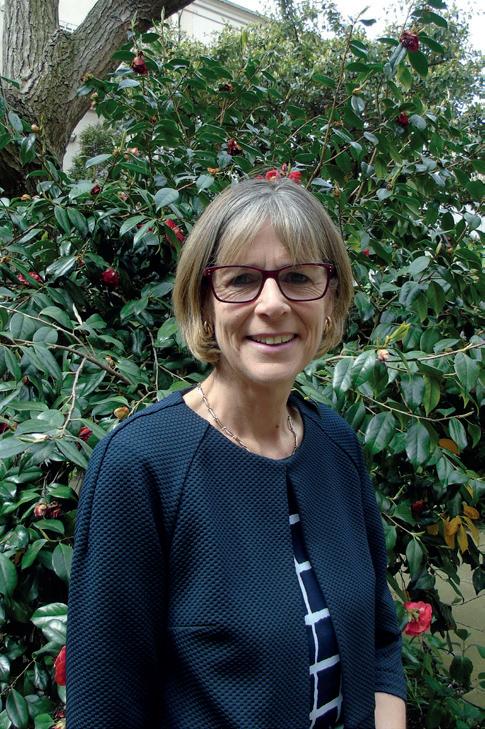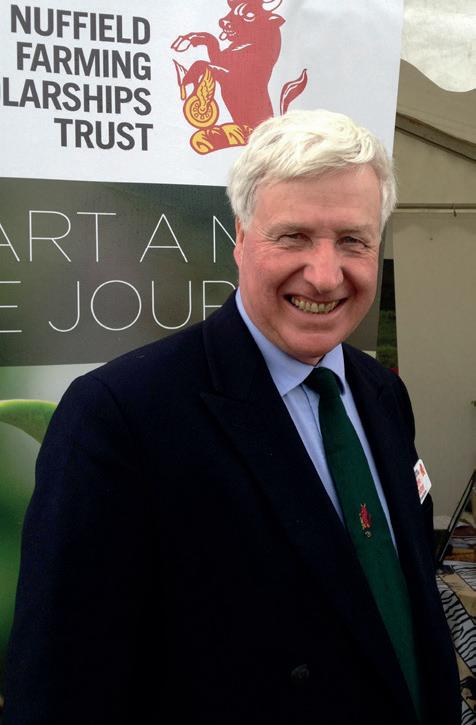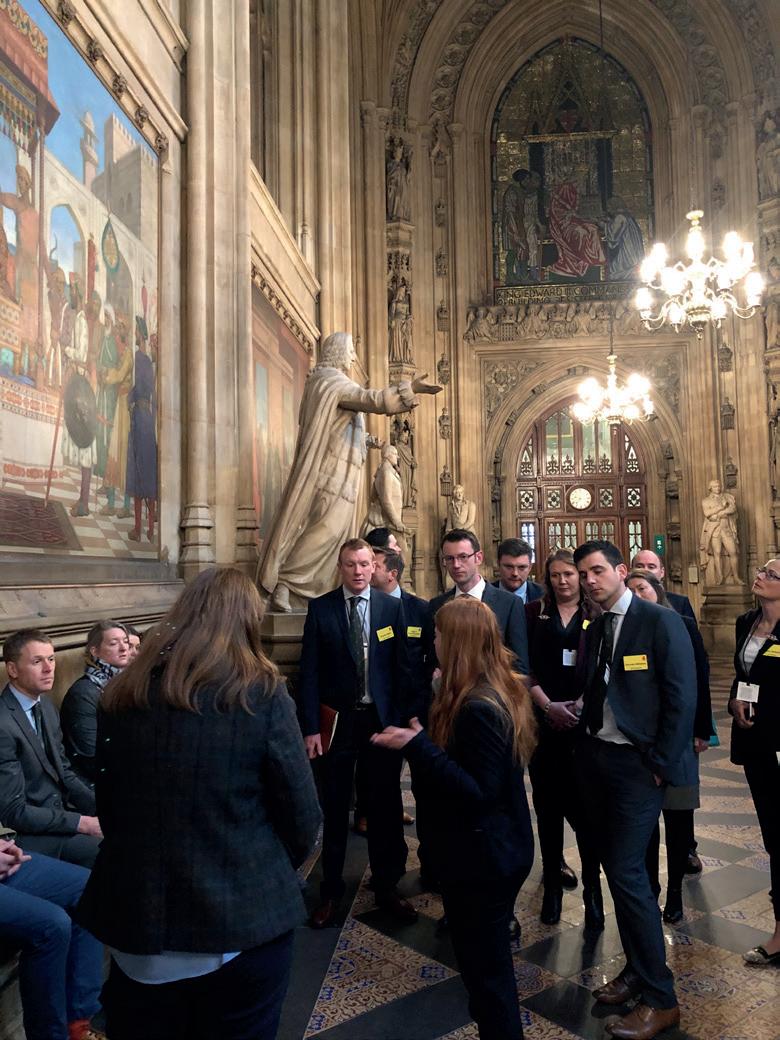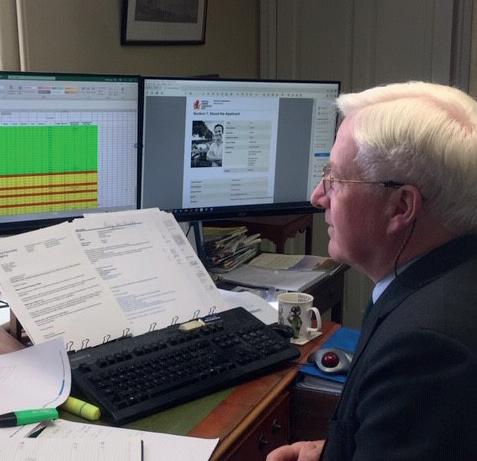MANAGING POULTRY WELFARE IN A TRANSITIONING WORLD OF TECHNOLOGY T H R E E C O U N T I E S A G R I C U LT U R A L S O C I E T Y & M C D O N A L D ’S U K & I R E L A N D JAMES SMALDON
james@exmooragriculture.com
Technology permeates throughout our lives, most notably witnessed by the phones we carry around each day in our pockets. It is evident that technology follows an exponential trajectory and that –whether we like it or not –development will be put into autonomous and precision farming. When caring for livestock, farmers hold both an emotional bond with the animals and a social licence with consumers, to look after these animals until their time has arrived to provide us with sustenance. The clock is ticking, with the continual creep of technological progress within the poultry industry and my worry was that during the initial phases of technology adoption, skills and experience may falter and cause an avoidable drop in the welfare of the birds; there have been instances where Tesla drivers have been seen sleeping whilst driving, and we cannot allow an analogous experience to happen within poultry farms. I had three interconnected aims for this report: firstly, to discover what precision and autonomous solutions are already or soon to be available to the UK poultry industry; secondly, to understand what exactly bird welfare is, stripping away anthropomorphism and perception bias; and thirdly, to present concepts to help poultry farmers, developers and the wider poultry industry to navigate the waters of technology adoption -improving bird welfare in conjunction with improving productivity. My findings showed that both precision and autonomous technology can provide benefits to the poultry industry, with a variety of robots, computer systems and revolutionary systems nearing commercial viability. As an industry, perception is critically important and the success or failure in the implementation of technology will determine how the consumer views the industry for decades to come. Advances in precision and autonomous technology will provide our farms with continuous detailed information so that we can make better decisions. Welfare will be able to be assessed live, allowing the farmer to react when an issue can be identified, not when it presents physical symptoms. Human connection with our animals is the most important link in the technological chain; we are here to make key decisions, to take responsibility, and to react to situations which cannot be predicted. The role of stockpeople will shift; there will be less manual handling, increased supervision of equipment, and vastly increased time to be actual stockpeople. During the adoption of technology, novel systems are likely to create a Welfare Falter which represents a temporary drop in bird welfare through a lack of competency with these systems. Using the strategies outlined in this report, manufacturers and farmers should be able to minimise the reduction in welfare to an absolute minimum and for the shortest period possible. In summary, technology is here to stay and, whilst some may resist its adoption within poultry farms, it is better to embrace, learn, understand and share so that farmers, consumers and –most importantly –the birds all benefit.
64
